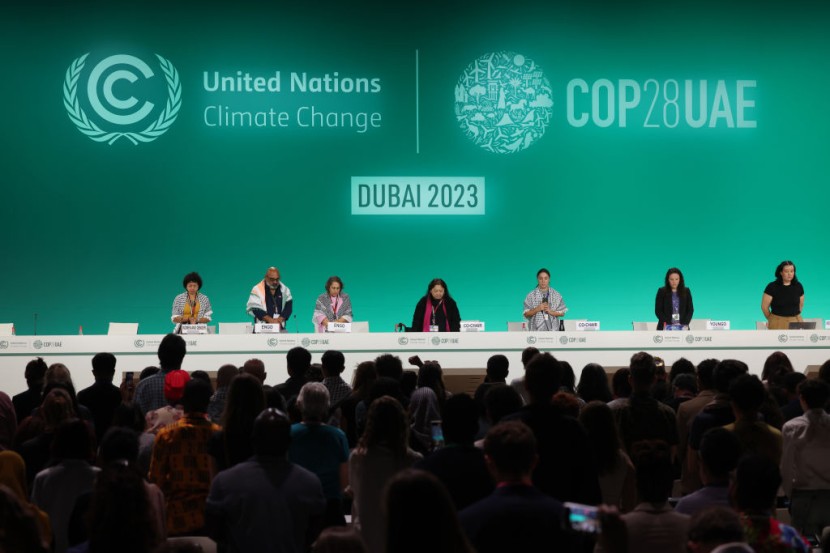As the COP28 climate talks in Dubai enter their final stages, full-scale resistance from oil-exporting countries, particularly the OPEC cartel, against a potential deal to phase out fossil fuels has triggered alarm among environmental advocates. Germany's climate envoy has characterized this resistance as a clear sign of "panic."
The OPEC cartel, comprised of 13 oil-rich nations, including major players like Saudi Arabia, has urged its members and OPEC+ allies to reject any agreement aimed at slashing fossil fuel production, as per Politico.
Fossil Fuel Phase-Out Faces OPEC Resistance

This plea has ignited heated debates among officials at the UN climate talks in Dubai, where a coalition of over 80 countries, including the United States, the European Union, and small island nations, is pushing for a deal that incorporates language to phase out fossil fuels, the primary culprits of greenhouse gas emissions.
COP28 President Sultan al-Jaber, recognizing the urgency of the situation, convened a special 'majlis,' allowing delegations to express their views in a less formal setting. Despite this effort, entrenched positions persisted among the delegations, making it unclear whether the forum had influenced a shift in stance.
OPEC, in a letter issued on December 6, called on its members to reject any language targeting fossil fuels in a COP28 deal. Observers have noted that some delegations seem to be heeding this call, further complicating the negotiation process.
Saudi Arabia, Russia, and other OPEC members argue that COP28 should prioritize reducing emissions rather than singling out the energy sources causing them. China's top climate envoy, Xie Zhenhua, described the current climate summit as the most challenging of his career, emphasizing the need for an agreement on fossil fuels for COP28 to be deemed a success.
Amidst the tensions, US Special Climate Envoy John Kerry held a meeting with China's delegation, though details of their discussion were not disclosed, according to New York Post.
COP29 Host Decision Amid Fossil Fuel Debate
The draft text proposed that COP29 be hosted by Azerbaijan in November next year, pending adoption by the summit. The core negotiating text, released on Friday, reflects a spectrum of options, from a phased-out approach aligned with scientific recommendations to various degrees of fossil fuel reduction.
Despite the resistance, a few nations, including Britain and Australia, signaled flexibility on the fossil fuel language, provided sufficient safeguards are in place. In contrast, the European Union maintained its stance that a phase-out of fossil fuels is essential to any effective climate deal.
The COP28 conference has seen commitments from countries to triple renewable energy and nuclear power deployments, reduce coal use, and curb methane emissions.
The International Energy Agency (IEA) estimates that if honored, these pledges could lower global energy-related greenhouse gas emissions by 4 billion metric tonnes of carbon dioxide equivalent in 2030. However, this represents only a third of the emissions gap needed to limit global warming to 1.5 degrees Celsius above pre-industrial levels.
As the clock ticks down on COP28, the world watches anxiously to see whether a compromise can be reached, balancing the urgent need for emissions reduction with the resistance from oil-exporting nations. The outcome will undoubtedly shape the global response to the climate crisis in the critical years ahead, Rauters reported.
Related Article: UPenn President Elizabeth Magill Resigns
© 2026 HNGN, All rights reserved. Do not reproduce without permission.








